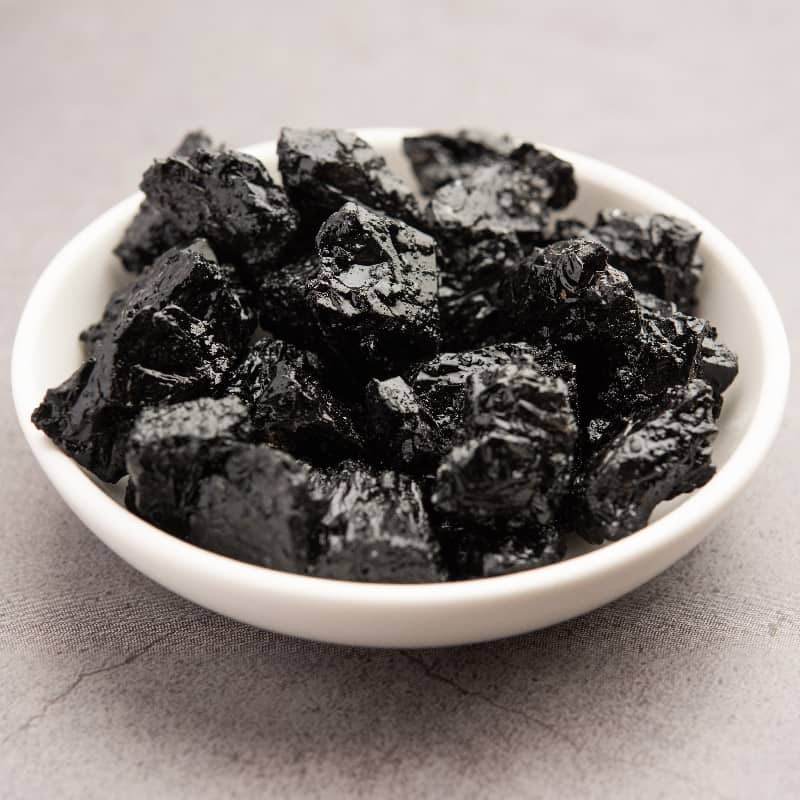This Dr. Axe content is medically reviewed or fact checked to ensure factually accurate information.
With strict editorial sourcing guidelines, we only link to academic research institutions, reputable media sites and, when research is available, medically peer-reviewed studies. Note that the numbers in parentheses (1, 2, etc.) are clickable links to these studies.
The information in our articles is NOT intended to replace a one-on-one relationship with a qualified health care professional and is not intended as medical advice.
This article is based on scientific evidence, written by experts and fact checked by our trained editorial staff. Note that the numbers in parentheses (1, 2, etc.) are clickable links to medically peer-reviewed studies.
Our team includes licensed nutritionists and dietitians, certified health education specialists, as well as certified strength and conditioning specialists, personal trainers and corrective exercise specialists. Our team aims to be not only thorough with its research, but also objective and unbiased.
The information in our articles is NOT intended to replace a one-on-one relationship with a qualified health care professional and is not intended as medical advice.
Chicken Collagen Benefits Digestion, Immunity & Skin Health
May 13, 2021

You might not be surprised that chickens contain collagen just like us, but did you know that chicken collagen is actually used as medicine? It’s true.
This type of protein is used to treat an array of health conditions, including arthritis, back and neck pain, and pain caused by surgery.
You’re probably wondering how in the world collagen from a chicken, especially free-range chicken, can make your achy joints and bodily pains finally leave you alone. Chicken collagen works by causing your body to produce substances that fight inflammation and pain.
It also contains chondroitin and glucosamine, two compounds that help rebuild cartilage.
Chondroitin and glucosamine are sold as pricey supplements to reduce join pain, arthritis and inflammation, but you can get both of these naturally from chicken collagen. That’s why chicken collagen can provide some amazing benefits for your gut, immune system, skin and more.
Health Benefits
1. Arthritis Relief
More than 50 million adults and 300,000 children have some type of arthritis, which is an informal way of referring to joint pain or degenerative joint disease. There are actually over 100 different types of arthritis and related conditions. Common arthritis joint symptoms include swelling, pain, stiffness and decreased range of motion.
Two of the most common and well-known types of arthritis are osteoarthritis and rheumatoid arthritis. Collagen may actually help stop an autoimmune disease like rheumatoid arthritis in its tracks or at the least greatly improve rheumatoid arthritis symptoms.
Chicken collagen is loaded with joint-healthy chondroitin sulfate and glucosamine sulfate — both of which are great for supporting your joints and maintaining healthy pH levels.
In a randomized, double-blind trial involving 60 patients with severe, active rheumatoid arthritis, the patients given chicken type II collagen for three months experienced a decrease in the number of swollen and tender joints. Patients who took a placebo did not have any improvements. Four of the patients in the collagen group had total remission of their arthritis, and patients who took the collagen had no evident side effects.
Undenatured type II chicken collagen has been shown to retrain the immune system to correctly recognize exposed cartilage proteins as the body’s own tissues, rather than incorrectly seeing them as foreign invaders. This prevents the inflammatory and destructive attack that causes osteoarthritic joint stiffness and pain. That’s why chicken collagen can improve joint flexibility, comfort and physical function, particularly in people suffering from arthritis.
2. Boosts Immune System
Research continues to provide proof that collagen can help seal openings in the gut lining and support gut integrity. This directly works to boost the immune system and is one of the reasons why chicken soup can truly make you feel better when you’re fighting a temporary illness or a chronic immune-related health problem.
When type II chicken collagen is ingested in cases of autoimmune inflammation, the first site of activity appears to be at the level of dendritic (antigen-presenting) immune cells in the intestines. These areas, known as Peyer’s patches, have a high population of dendritic cells.
These incredible cells were first discovered more than 30 years ago and are now known as controllers that can both create and decrease your body’s immunity. By incorporating chicken collagen into your diet, you can improve your primary immune responses as well as the ability of your immune system to be adaptive in general.
Chicken collagen also has been shown to reduce pro-inflammatory cytokine production in mice, with researchers concluding that chicken collagen hydrolysate “treatment might help prevent atherosclerosis through not only its lipid-lowering effects but also inhibiting expression of inflammatory cytokines.”
3. Skin Benefits
Collagen helps form elastin and other compounds within skin that are responsible for maintaining skin’s youthful tone, texture and appearance. Nutrition is key when it comes to skin health and appearance.
The more collagen you have in your body, the less likely you are to have one of the most visible signs of aging: wrinkles. That means chicken collagen can be added to your natural skin care regimen.
While many face creams claim to revitalize skin by including collagen in their ingredients, the molecules in these topical products are usually too large for your skin to absorb.
Research shows that oral collagen supplementation effectively improves the common signs of skin aging. One study found that skin hydration improved after eight weeks of collagen supplementation while collagen density in the dermis significantly increased after just four weeks of supplementation.
By consuming bone broths and collagen supplements, you can ensure better collagen absorption and improve your body from the inside out.
4. Improved Digestive Health
Chicken collagen helps support a healthy mucosal layer in the gut. Studies have found that in individuals with digestive imbalances, serum concentrations of collagen are decreased.
Because the amino acids in collagen build the tissue that lines the colon and entire gastrointestinal tract, supplementing with collagen can support healthy digestive function. By keeping the mucosal layer of you gut healthy, you can avoid leaky gut syndrome, which is often the root cause of food allergies, low energy, joint pain, thyroid disease, autoimmune disease symptoms and slow metabolism.
5. Enhanced Athletic Performance
Research conducted by the Department of Nutrition and Sports Nutrition for Athletics at Pennsylvania State University found that when athletes supplemented with collagen over the course of 24 weeks, the majority showed significant improvements in joint comfort and a decrease in factors that negatively impacted athletic performance.
It’s not surprising that type II collagen helps arthritis as well as sports-related joint issues because it naturally contains chondroitin and hyaluronic acid. These are two substances known to support joint health.
Chondroitin helps keep cartilage healthy by absorbing fluid (mainly water) into the connective tissue. It also provides the building blocks for the body to produce new cartilage and may also block enzymes that break down cartilage.
Hyaluronic acid, naturally found in joint fluid, lubricates joints.

Nutrition
Collagen is a protein that’s a key component of cartilage, bone and other tissues in both animals and humans. Chicken collagen is a naturally occurring protein in, you guessed it, chickens. It’s usually taken mainly from the breast cartilage of a chicken.
Chicken collagen is extremely rich in type II collagen. Type II forms of collagen are taken from cartilage matter.
Chicken collagen can be synthesized and made into an injectable solution or a supplement. It can also be obtained from chicken bone broth.
If you are looking for collagen sources in food, look no further than a high-quality bone broth made from chicken. Chicken bone broth is a great place to obtain chicken collagen as well as valuable amino acids, gelatin and trace minerals. In fact, there are dozens of different nutrients found within bone broth, many of which can’t be obtained easily from other commonly eaten foods.
Other options for incorporating chicken collagen into your diet include using a bone broth supplement or a collagen supplement.
Whatever route you choose, the type II collagen found in chickens is loaded with so many vital nutrients. It’s full of conditional amino acids like arginine, glutamine, glycine and proline.
Under normal and healthy circumstances, all of these amino acids are produced by your body. However, when you’re stressed, sick or otherwise unhealthy, your body may not be able to produce enough of these amino acids by itself. This is when it needs help from outside sources, like diet or supplements, to get its fill.
These “nonessential” amino acids are actually quite valuable. Glycine and proline, in particular, play a major role in ensuring your body’s running smoothly.
To ensure our cells function properly, glycine helps build healthy DNA strands. It’s also one of three amino acids that form creatine, which promotes healthy muscle growth and boosts energy production during workouts.
Proline makes up almost 15 percent of collagen. Among other roles, it helps with proper muscle tissue maintenance and protects the digestive system from permeability.
In addition to amino acids, chicken collagen also contains joint-boosting chemicals known as chondroitin and glucosamine, both of which might help rebuild cartilage.
History
- Chicken collagen is the most popular collagen product used in medicine.
- Chicken collagen, which is a type II collagen, is the major component of joint cartilage.
- Chicken collagen is loaded with joint-healthy chondroitin sulfate and glucosamine sulfate — both are great for supporting your joints and maintaining healthy pH levels.
- Eating collagen-rich chicken feet is common in many countries around the world, including China, Indonesia, Korea, Thailand, Laos, Malaysia, Trinidad and Tobago, Ukraine, Russia, Romania, Moldova, Jamaica, South Africa, Peru, Mexico, Philippines, Cambodia, and Vietnam.
- Chinese medicine practitioners use chicken bone broth to strengthen the kidney, support digestive systems and build blood.
- In French, chicken collage is known as poulet collagène.
- Once we hit our 20s, our collagen levels begin to decline. Compared to those in their 20s, people in their 80s have around four times the amount of collagen breakdown.
How to Use
If you want real chicken bone broth and real bone broth benefits, then ideally you should make your broth at home. Try this Chicken Bone Broth Recipe — it’s both delicious and highly nutritious.
As bone broth simmers, collagen from the animal parts leaches into the broth and becomes readily absorbable to help restore you. Some bone broth supplements even enable you to make bone broth ridiculously quickly by simply combining the bone broth powder with water.
You can find collagen supplements at your local health store and online. Collagen powders can easily be mixed into smoothies, soups and baked goods to provide collagen’s health benefits without adding any taste.
When it comes to appropriate dosing of chicken collagen supplements, it depends on your age and health status. Very large individuals or those with severe joint problems may need to take larger doses, while smaller individuals or those just taking collagen as a skin/joint maintenance supplement need a smaller daily dose.
Package instructions should offer generally good guidance, but always consult your health care provider if you’re unsure.
It’s important to note that there are many factors that support the formation and use of collagen in the body, such as vitamin C, manganese, copper, proline and foods high in anthocyanidins (like blackberries, blueberries and cherries). In order for collagen to be activated in the body, you always want to take your supplements with a source of amino acids and vitamin C, or make sure that your supplement includes these activating nutrients to ensure absorption and usefulness to your body.
There are at least 16 different types of collagen within the human body. These include collagen types 1, 2, 3, 5 and 10.
However, the vast majority of the collagen — between 80 percent and 90 percent — consists of collagen 1, collagen 2 and collagen 3. Type 1 collagen specifically accounts for almost 90 percent of the body’s supply, according to some findings.
There are also different types of collagen found in certain foods or used to create collagen products and supplements.
Another important aspect is hydroxyproline, an important component of the collagen triple helix. Hydroxyproline is needed for collagen stability and is created by modifying normal proline amino acids after the collagen chain is built.
This reaction also requires vitamin C (to assist in the addition of oxygen), which is why vitamin C deficiency can cause abnormalities in collagen levels.
Related: Bovine Collagen Benefits for Skin, Sleep & Muscle Repair
How to Add to Diet
- Make or drink real chicken bone broth.
- Use protein powder made from bone broth in recipes. You can consume bone broth on its own or use it in all sorts of sweet and savory recipes depending on the type of product.
- Take collagen supplements, such as collagen hydrolysate, and other collagen products. A collagen supplement can be found typically as hydrolyzed collagen, which helps form new collagen. When you hydrolyze collagen, collagen peptides become bioavailable.
- Eat a well-rounded diet that helps increase absorption of the collagen peptide you consume, and avoid pro-inflammatory foods.
Risks and Side Effects
Collagen type II is considered safe when taken orally at recommended doses. Side effects of chicken collagen are not likely unless doses are too high or you have a chicken or egg allergy.
If you’re allergic to chicken or eggs, you should not use any chicken collagen supplements or products.
Collagen type II contains chondroitin and glucosamine, which in large doses can cause headache, nausea, heartburn, diarrhea and constipation, drowsiness, and/or skin reactions.
If you’re pregnant or breast-feeding, it’s best to avoid chicken collagen supplements because there is not a great deal of information on the safety of taking type II collagen if you’re pregnant or breast-feeding.
Final Thoughts
- Chicken collagen is a naturally occurring protein in chickens that’s a key component of cartilage, bone and other tissues.
- This type of protein is used to treat an array of health conditions, including arthritis, back and neck pain, and pain caused by surgery. It also boosts the immune system, benefits the skin, improves digestive health and helps enhance athletic performance.
- If you want real chicken bone broth and real bone broth benefits, then you should make your own chicken broth at home.










